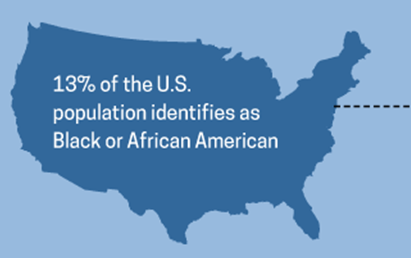As our community copes with the emotional fallout of living through the COVID-19 pandemic, thousands of families are suffering from various forms of loss. Married couples are under more stress and strain due to the loss of a job, illness, or the death of a family member. The death of a child is one of the most difficult and traumatic events that parents will ever experience, as they mourn not only the loss of life, but also the child’s potential and future. And parents suddenly find themselves confronting their own futures with uncertainty, dealing with an experience they never imagined. The traumatic experience can not only have an impact on their emotional well-being, but it can also test the strength of a marriage.
In my experience as a family law attorney, major losses such as this have led to difficulties in marital functioning, though studies related to divorce among bereaved parents have mixed results. One study reported divorce rates as much as eight times higher than the norm (Lehman, Wortman, & Williams, 1987), although a review of the literature (Oliver, 1999) did not support this claim and it was found difficult to draw conclusions about marital disruption following the death of a child (Murphy, Johnson, Wu, Fan, & Lohan, 2003). As parents deal with the pain and confusion that comes after the death of a child, marriage and family therapists can offer insight and guidance on how parents can help each other cope with the grief and prevent their marriage from deteriorating beyond repair.
One study published in the U.S. National Library of Medicine found that the death of a child is an agonizing event that can have long-term effects on the lives of parents (Parkes, 1998). Research on bereaved parents found that they experienced more depressive symptoms, poorer well-being, and other health problems which could lead to marital separation (Rogers, Floyd, Mailick, Greenberg, & Hong, 2008). The months following the loss of a child can be emotionally, physically, and mentally exhausting, and can be when the majority of marital issues start to occur.
According to The Center of Complicated Grief (2018) at Columbia University, parents may start to develop negative feelings towards their spouse after the death and may find themselves unable to support each other and start to withdraw. If there were marital problems before the child’s death, a situation like this can exacerbate that strain, making it even worse to work through. Grieving couples may also start to place the blame and guilt on their spouse, and may start to feel anger and resentment, as well as feel depressed and alone. Couples may need to seek professional help to try and manage the tidal wave of emotions and chaos that often follows such a loss.
According to the Centers for Disease Control and Prevention (CDC; 2012), more than 9,000 children and young adults, ages 1 to 19 years, die from unintentional injuries each year. Some of the leading causes of death are accidents, homicide, suicide and cancer. According to researchers, pediatric cancer can have a considerable effect on a marriage due to psychological and emotional stress, as well as the significant financial stress it puts on the entire family (Rodriguez et al., 2012). Taking care of a sick child can cause a huge emotional toll on both the caregiving parent and the marital relationship. It’s not uncommon for parents to experience anxiety, guilt, anger and overall distress at the situation. While some relationships are weakened by these circumstances, others are strengthened when a child is diagnosed with cancer. A Danish study that compared more than 12,400 parents of children diagnosed with cancer between 1982 and 2014 to nearly 70,000 parents whose kids were cancer-free found that having a child with cancer did not appear to affect parents’ risk of splitting up or their plans to have more kids (Ryan, 2020).
There are other factors that can contribute to how a loss can impact a marriage, including whether or not a parent had a role in the death of the child. Deadly car accidents, while unintentional, can cause conflict if one parent was the driver and the other places blame. In cases where there are terminally ill children involved, spouses may not always agree on the same treatment, they may blame each other, or they may drift apart in the event of the loss.
In cases where there are terminally ill children involved, spouses may not always agree on the same treatment, they may blame each other, or they may drift apart in the event of the loss.
When faced with grief, couples might feel that taking time to strengthen their marriage or relationship is one of the last things to consider. In fact, it is one of the best things they can do for themselves and their family, especially if there are other children involved. An event like this may disconnect them from reality, and it will take a professional therapist to help them through it.
How therapy can help
Navigating the loss of a child has the potential to cause much emotional upheaval. Therapists can actively work with couples to help get their relationship back on track. The couple will have to learn how to communicate their feelings and share any hopelessness, helplessness, confusion, anger, depression, or guilt they might feel. It is important for parents to go through the grieving process, however, and in some cases, the process could take months or even years. The few studies that have followed parents for years after a child’s death support the concept of their preoccupation with the loss of children across the life cycle (Christ, Bonanno, Malkinson, & Rubin, 2003). Couples may also find that they may not grieve the same way. Mourning is a personal experience. Not everyone reacts the same to the death of a loved one. One spouse may have the instinct to reach out and connect to feel intimate support, as well as reach out to other people in order to feel less alone. The other spouse may want to be alone or shut down completely. There is no right way to mourn or grieve a loss, so it is important to understand that people will cope in their own way and at their own pace. Those who come together could seek comfort through family members and friends or try to seek support groups in order to establish new connections with other couples who have been through the same ordeal.
MFTs should be prepared for the reality that couples may grieve differently. Parents who are having a difficult time grieving the loss should seek ways that will allow them to navigate and release themselves from being consumed by emotion, giving them the ability to move forward and find healthy ways to honor their child. Some couples may feel like their marriage is drifting apart, while others who have strong marriages will come together with a shared vision on how to honor the child’s memory and have open communication and willingness to keep the marriage going despite the unimaginable loss.
Couples who are able to be open will form a stronger bond and have a greater chance of moving forward with their lives. It won’t come easy, and it may be difficult to start the process. Bereaved couples are likely consumed with grief and are trying to find the strength to accept and move on. MFTs can help couples protect and even strengthen a marriage, and avoid even more loss by separating or divorcing.

Debra Schoenberg, JD, is a family law attorney and founder of Schoenberg Family Law Group P.C. With more than 30 years of experience and expertise, Schoenberg handles legal matters that range from complex financial issues and extensive marital estates, to high-conflict custody matters. www.sflg.com
REFERENCES
Centers for Disease Control and Prevention National action plan for child injury prevention. Retrieved from https://www.cdc.gov/safechild/pdf/National_Action_Plan_for_Child_Injury_Prevention-a.pdf
Christ, G., Bonanno, G., Malkinson, R., & Rubin, S. (2003). Appendix E: Bereavement experiences after the death of a child. National Academies Press.
Lehman, D. R., Wortman, C. B., & Williams, A. F. (1987). Long-term effects of losing a spouse or child in a motor vehicle crash. Journal of Personality and Social Psychology, 52(1), 218-231.
Murphy, S. A., Clark Johnson, L., Wu, L., Fan, J. J., & Lohan, J. (2003). Bereaved parents’ outcomes 4 to 60 months after their children’s deaths by accident, suicide, or homicide. A comparative study demonstrating differences. Death Studies, 27(1), 39-61.
Oliver, L. E. (1999). Effects of a child’s death on the marital relationship: A review. OMEGA – Journal of Death and Dying, 39(3), 197-227.
Parkes, C. M. (1998). Bereavement in adult life. The BMJ, 316(7134), 856-859.
Rodriguez, E. M., Dunn, M. J., Zuckerman, T., Vannatta, K., Gerhardt, C. A., & Compas, B. E. (2012). Cancer-related sources of stress for children with cancer and their parents. Journal of Pediatric Psychology, 37(2), 185-197.
Rogers, C., Floyd, F., Mailick, M., Greenberg, J. & Hong, J. (2008). Long-term effects of the death of a child on parents’ adjustment in midlife. Journal of Family Psychology, 22(2), 203-211.
Ryan, B. (2020). Children’s cancer diagnosis not tied to parents’ rate of divorce. CancerHealth.com. Retrieved from https://www.cancerhealth.com/article/childrens-cancer-diagnosis-tied-parents-rate-divorce
The Center for Complicated Grief. (2018). Complicated grief among parents after the death of a child. Retrieved from https://complicatedgrief.columbia.edu/wp-content/uploads/2017/11/Complicated-Grief-after-the-loss-of-a-child.pdf
Other articles
Thank You
AAMFT members, the Board of Directors, and staff demonstrated dedication to quickly and effectively respond to the pandemic and racial injustices. Both issues will endure, and I am very confident that AAMFT, with assistance from its outstanding members, will continue to admirably respond. I offer my sincerest gratitude to everyone for helping to make AAMFT a true leader within the field of marriage and family therapy.
Tracy Todd, CEO
Conversations Must Lead to Action
Obviously, I’m privileged. Nearly every situation, challenge, and opportunity provides me advantages that other people do not experience. Recognizing this, over the years I have dealt with the range of emotions that accompany this: guilt, frustration, embarrassment, worry, anger.
Tracy Todd, PhD
Noteworthy
Data Note on mental health and Black Americans and Therapy Talk on working for racial justice.



